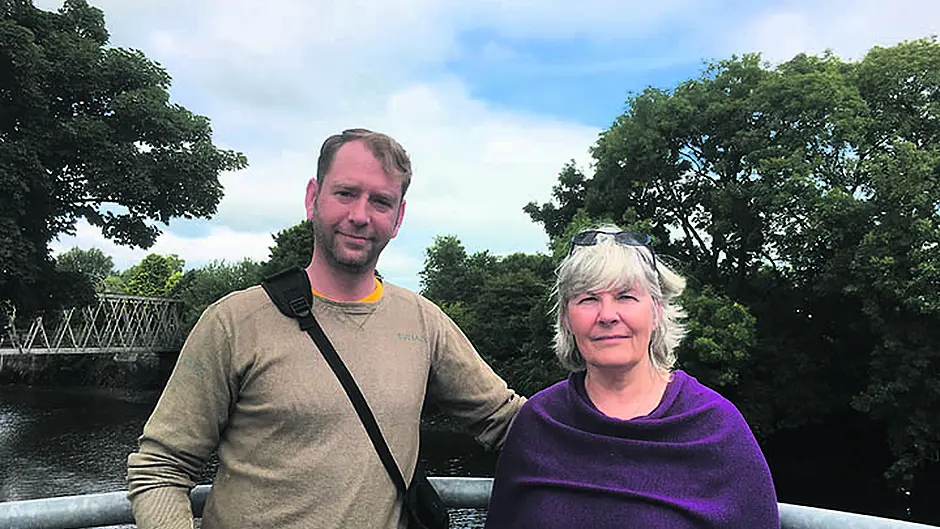A Canadian environmentalist is visiting Skibbereen to warn people of the dangers presented by a plastic component known as nurdles.
A CANADIAN environmentalist is visiting Skibbereen to warn people of the dangers presented by a plastic component known as nurdles.
After researching nurdles, Fiona Vincent – who is a member of SOS, Save Our Skibbereen, an organisation that is opposing a plan by Daly Products Ltd to build a new plastics factory in Skibbereen – came across a story about Bryan McNeill.
Brian’s work led to the Environmental Protection Agency in his area forcing the local plastics company to clean up the waterways in his native Guelph in Ontario, Canada.
Speaking on behalf of the organisation, Ms Vincent said: ‘We invited him to come here because SOS is looking at how we can develop the area in a much better way, rather than bringing a plastic polymer compounding factory to Skibbereen.’
Ms Vincent said: ‘Our concern is that the plastic polymer compounding factory doesn’t fit with this environment and will damage the jobs from tourism and harm our efforts to attract technology companies here.
‘The Local Area Plan here is to develop Skibbereen through technology and tourism. We believe there will not be enough jobs from this factory to countermand the jobs we might lose from tourism and technology.’
Ms Vincent explained that nurdles are very small pellets of plastic that serve as the raw material in the manufacture of plastic products.
She said that if nurdles – which are the size of a fish egg or a lentil – get into waterways through spillage or through a wastewater system, they pass through underground storm drains and get into rivers where they are eaten by fish and birds.
Mr McNeill, who is a barista and a music promoter by profession, said he began cleaning up the waterway in his area by removing cans and bottles and Styrofoam, but then he started noticing the nurdles, which he initially thought were biological in nature.
‘When I re-watched a documentary by Ian Connacher called Addicted to Plastic, I realised what they were because they were way too hard to be fish eggs.’
During his 14-day visit to West Cork, Bryan McNeill had meetings to discuss the nurdle problem in Guelph with local residents Lord and Lady Puttnam and actor Jeremy Irons, who will be attending a viewing of the environmental documentary ‘Trashed’ at the Town Hall in Skibbereen on Thursday, August 23rd.
Together with representatives of SOS, it is also Mr McNeill’s plan to have a video conference with Polly Higgins, an earth lawyer based in Gloucestershire in the UK, who is seeking to make the crime of ‘Ecocide’ the fifth crime against humanity.
Throughout his visit, he said he will be conveying a simple message: ‘Do good. Feel good. Don’t destroy your environment. Leave it nicer than you found it.’
A spokesman for the RTP Company told The Southern Star: ‘We welcomed the decision of Cork County Council to grant planning permission for our project in Skibbereen which gave due consideration to the observations received from local residents.
‘As two of the residents have decided to exercise their right of appeal to An Bord Pleanala we will respect the appeal process by responding directly to the Board’s queries and declining to make any public comment on the grounds of appeal until the Board has made its decision.’
A Council spokesperson confirmed that a mandatory environmental impact assessment (EIA) was not required because the development is ‘not one of the prescribed classes of development requiring a mandatory EIA.’
The spokesperson said the Council made an assessment on the initial application, and sought further information from the applicant to determine whether ‘a sub-threshold EIA’ was required. After completing both reports, the spokesperson said the planning authority determined that the applicant did not require a sub-threshold EIA.









